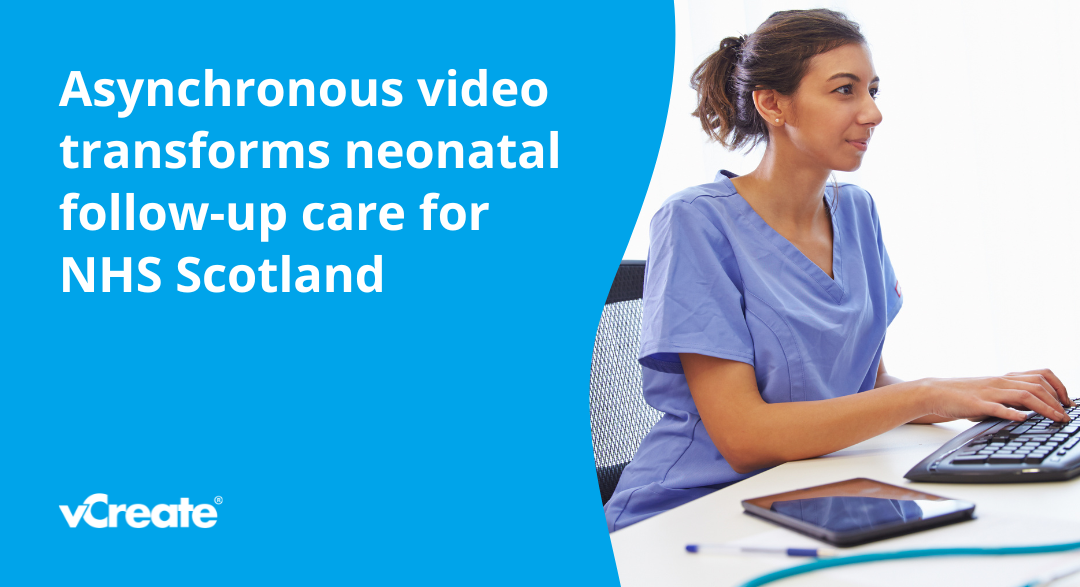Asynchronous video transforms neonatal follow-up care for NHS Scotland
05 March 2024

Across Scotland, over 6,000 babies are treated in neonatal units (NNUs) every year with many requiring continued, remote care due to ongoing medical issues or to screen for early signs of adverse developmental outcomes.
Neonatal follow-up programmes provide crucial family-centred care for high-risk infants, children, and their families. Traditionally, these services are conducted through in-person appointments to provide physical developmental evaluations of NNU outpatients. However, many assessments require children to perform specific tests at certain stages of development. These visual requirements make it challenging for follow-up teams to work flexibly with families, particularly those who live long distances away.
Neonatal teams across NHS Scotland began investigating how asynchronous clinical video technology could be used as an additional follow-up pathway for high-risk infants and children. In 2020, the NHS trusted secure video service, vCreate, was piloted across a select number of Scotland’s neonatal centres to securely share and access assessment footage.
Hilary Cruickshank, Clinical Specialist Neonatal Physiotherapist at NHS Lothian, said: “With very little training required, we found vCreate easy to use. Even when face-to-face appointments or live consultations were viable, the pre-recorded patient videos acted as a useful supplement to help direct our focus of care, highlighting any potential issues with a baby’s development.”
By harnessing the universal ability of smartphone video, professionals have been able to monitor high-risk patients and identify and diagnose conditions that they would not have found as quickly through traditional means.
NHS Highland Paediatric Physiotherapist, Suzanne Offer said: “With access to the asynchronous video pathway, we can ensure that more of our high-risk patients are regularly monitored. If we fall behind with our waiting lists, we still have access to and the ability to recommend parents upload this assessment footage. This also means we are more able to meet the recommendations set out in the NICE guidelines.”
NHS Scotland’s trial of the secure clinical video service has improved remote access to neonatal care, helped hospitals continue to offer follow-up support and given professionals a more holistic view of patients’ development.
Read the full case study here or email us to request a demo.
